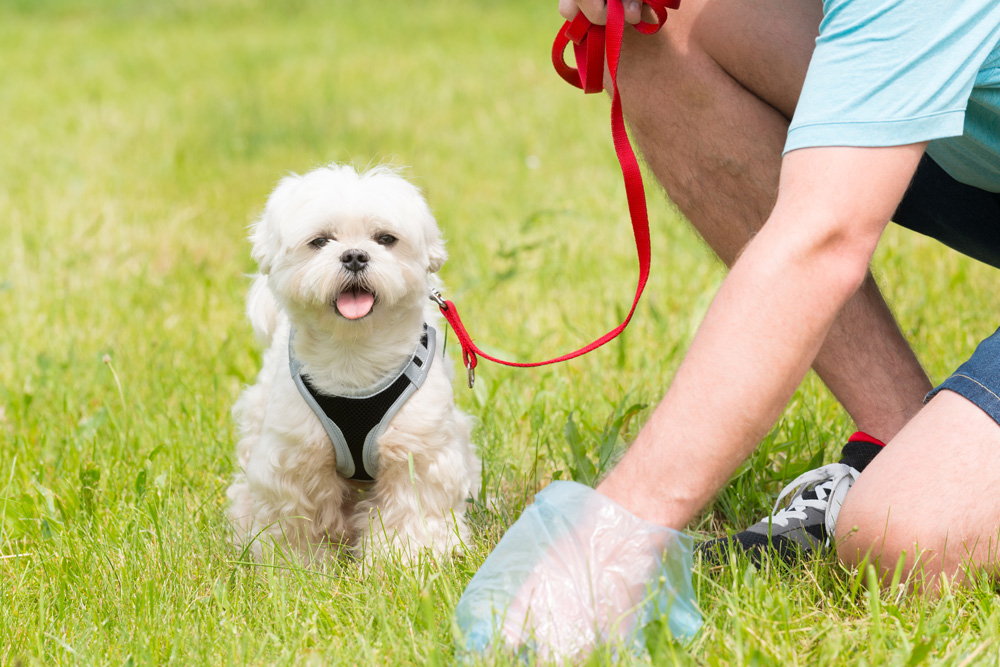Animal Care
Storm drains are not connected to wastewater treatment plants or septic systems like the drains in your home. When pet or livestock waste is left on the sidewalk, street, or yard, stormwater and non-stormwater runoff can wash it directly into our storm drain system and out to our creeks, rivers, and ocean without it being treated first.
Animal waste is a threat to human and environmental health because it contains harmful bacteria and pathogens, some of which can cause serious diseases in humans. Animal waste also contains many other nutrient pollutants, which contribute to damaging algae growth in a water body.
Being a responsible owner means picking up after your animal. Here is how you can properly dispose of animal waste and prevent local water pollution:
- Bring a bag
- Clean it up
- Dispose of it properly (trash or toilet)
Use these tips to help prevent polluted runoff from entering our storm drain system.
Required Activities

Pets
- All pet waste must be picked up and properly disposed of. Pet waste should be disposed of in the regular trash or flushed down a toilet
- To properly dispose of pet waste, carry bags or a pooper-scooper while walking with pets
- Bathe pets indoors and use less toxic shampoos. When possible, have pets professionally groomed
Properly inoculate your pet to maintain their health and reduce the possibility of pathogens in pet wastes - Properly dispose of unused flea control products (shampoo, sprays, or collars)

Horses
- Use less-toxic alternatives for grooming. Even biodegradable products can be harmful to humans, marine life and the environment. Follow instructions on the products and clean up spills
- When washing horses, allow wash water to infiltrate into the ground, or collect in an area that is routed to a sanitary sewer, not a storm drain
- During heavy rainfall, consider indoor feeding, a practice that keeps manure under a roof and away from runoff
- Store animal waste in a sturdy, seepage-free unit that is enclosed or under cover
- Do not store manure on-site for more than one week

Livestock
- Manure produced by livestock in uncovered areas should be removed daily for composting or stored in a water-tight container prior to disposal. Never hose it down a storm drain
- Line waste pits or trenches with a water-resistant layer, such as thick plastic sheeting
- When possible, allow wash water to infiltrate into the ground, or collect in an area that is routed to a sanitary sewer, not a storm drain
- Confine livestock in fenced-in areas except during exercise and grazing times. Restrict animal access to creeks and streams, preferably by fencing
- Install gutters that will divert roof runoff away from livestock areas
- Maintain healthy and vigorous pastures with at least three inches of leafy material
- Consider indoor feeding of livestock during heavy rainfall, to minimize manure exposed to potential runoff
- Locate barns, corrals, and other high use areas on portions of property that either drain away from or are located distant from nearby creeks or storm drains
More Information
For more information about proactive pet care to prevent polluted runoff, check out our applicable brochures below: